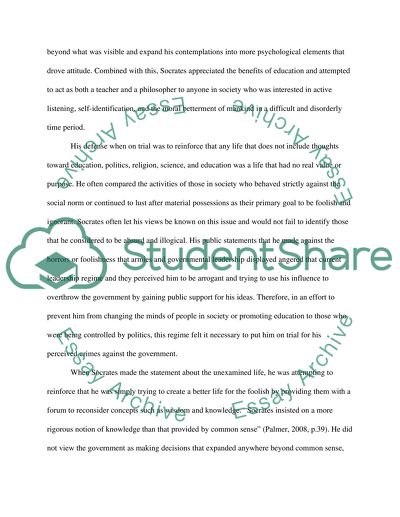Cite this document
(“The significance of Socrates Statement: The Unexamined Life is not Admission/Application Essay”, n.d.)
The significance of Socrates Statement: The Unexamined Life is not Admission/Application Essay. Retrieved from https://studentshare.org/philosophy/1565128-the-significance-of-socrates-statement-the-unexamined-life-is-not-worth-living
The significance of Socrates Statement: The Unexamined Life is not Admission/Application Essay. Retrieved from https://studentshare.org/philosophy/1565128-the-significance-of-socrates-statement-the-unexamined-life-is-not-worth-living
(The Significance of Socrates Statement: The Unexamined Life Is Not Admission/Application Essay)
The Significance of Socrates Statement: The Unexamined Life Is Not Admission/Application Essay. https://studentshare.org/philosophy/1565128-the-significance-of-socrates-statement-the-unexamined-life-is-not-worth-living.
The Significance of Socrates Statement: The Unexamined Life Is Not Admission/Application Essay. https://studentshare.org/philosophy/1565128-the-significance-of-socrates-statement-the-unexamined-life-is-not-worth-living.
“The Significance of Socrates Statement: The Unexamined Life Is Not Admission/Application Essay”, n.d. https://studentshare.org/philosophy/1565128-the-significance-of-socrates-statement-the-unexamined-life-is-not-worth-living.


